2025 EGA Annual Retreat
The Redford Center team joined a national community of environmental grantmakers, philanthropy leaders, and changemakers at the 2025 Environmental Grantmakers Association Annual Retreat in Santa Ana Pueblo, NM, to present Screen on the Green, an outdoor showcase featuring excerpts from five supported films that highlight Indigenous leaders, land defenders, and communities on the frontlines of environmental change.
To Use a Mountain | Casey Carter (Director, Cinematographer, Editor)
Demon Mineral | Hadley Austin (Director)
Bring Them Home | Daniel Glick (Director, Writer); Ivan MacDonald (Director, Writer); Ivy MacDonald (Director)
Drowned Land | Colleen Thurston (Director)
The Last Floating Garden | Megan Alldis (Director)
In conjunction with the screening, we hosted a conversation with Demon Mineral director Hadley Austin and Diné activist Teracita Keyanna, exploring the legacy of uranium extraction on Diné lands and the power of community-driven storytelling to confront environmental injustice and reclaim narrative agency.
Beyond the film screenings, we took part in discussions with environmental grantmakers and philanthropy leaders about the importance of collaboration and community-led solutions that can help us address issues like those highlighted in our supported films. Once again, we understand that collective action — especially in challenging times — will always play a critical role in providing solutions to environmental challenges.
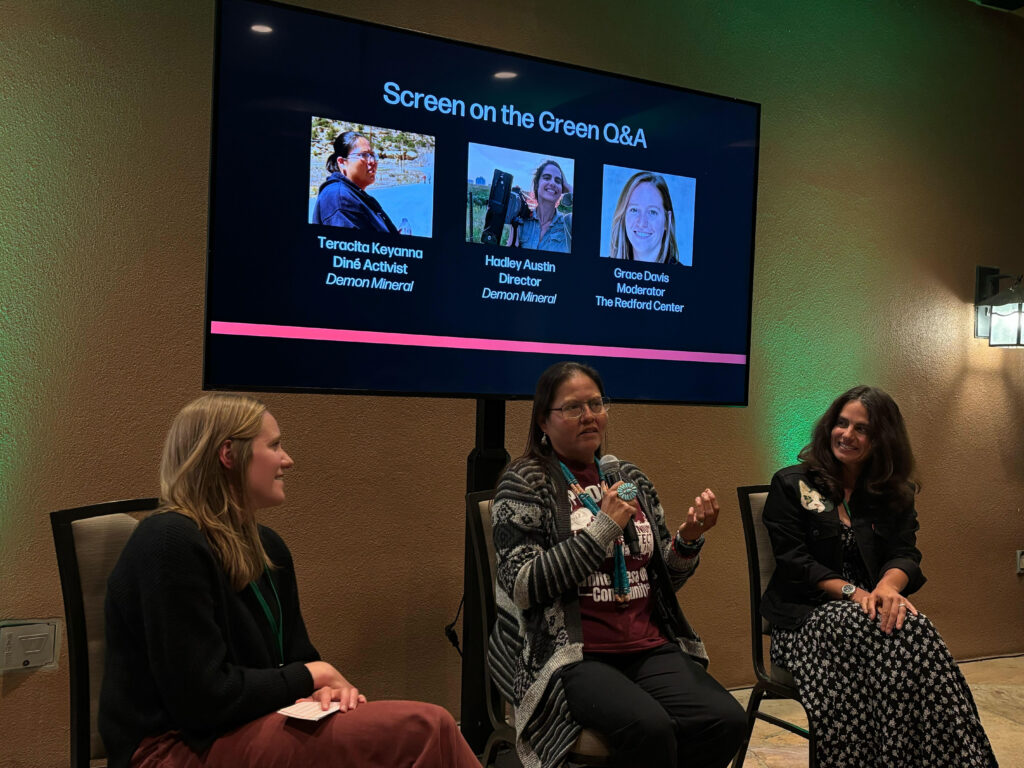
Powering the Narrative at Climate Week
What will ultimately move the needle on climate change? Stories that help people see themselves in the movement. At Climate Week’s Climate Film Festival last month, the Narrative Change Summit included the “Powering the Narrative” panel. To a packed audience of filmmakers and philanthropists, The Redford Center shared real-world impact from our supported films, with a special focus on Razing Liberty Square directed by Katja Esson, one of the first films to illuminate climate gentrification through the lived experiences of Miami residents facing public housing displacement.
We also joined critical conversations with leaders from across the climate movement — award-winning filmmakers, producers, founders, and CEOs — exploring how media represents climate change in film and television, and how together, we can harness storytelling’s collective power for climate action.
Throughout the week, conversations reinforced a shared belief in the power of creative collaboration:
• A focus on centering communities at the heart of climate communications.
• A preview of new climate films and performances that beautifully reflect our connection to the natural world.
• A reminder to trust creators when brands and storytellers team up for social-impact campaigns.
Across every conversation, one theme rang clear: storytelling moves people, helping us understand what’s at stake, imagine what’s possible, and feel part of the change.
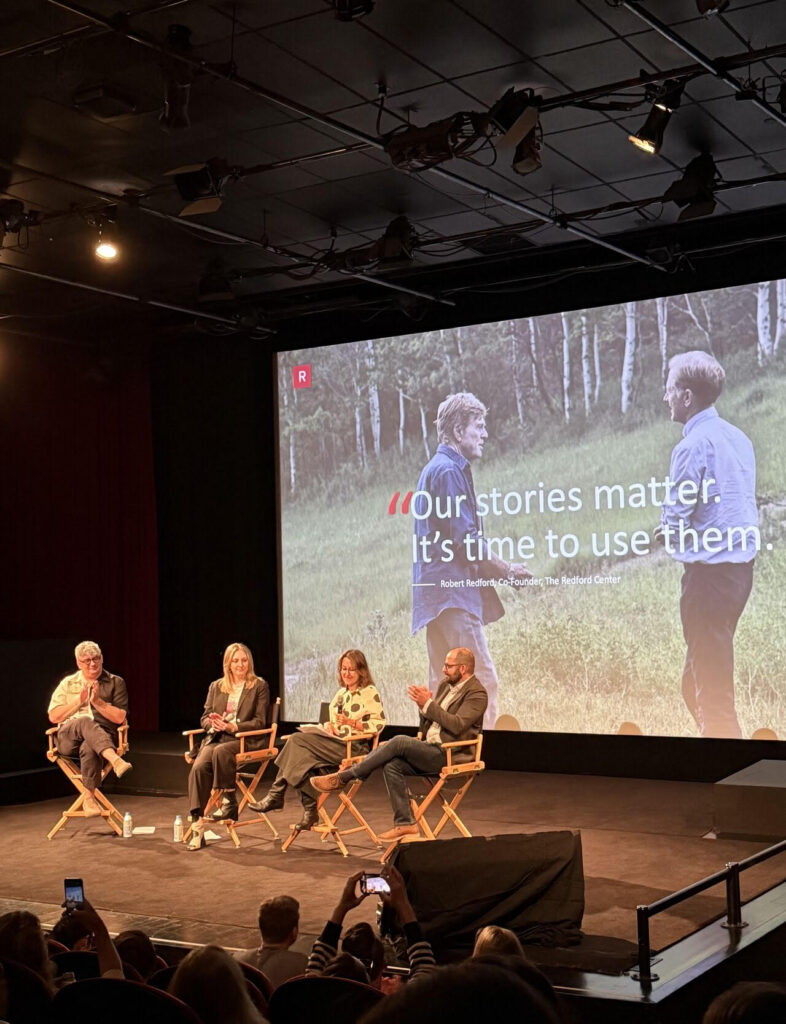
Life Lessons from Robert Redford
For two decades, Robert Redford’s vision guided The Redford Center’s belief in the power of story to awaken hearts and communicate, educate, and mobilize for change. From the canyons of Utah to the stages of international film festivals, Bob’s enduring message was simple and urgent: “Doing nothing is not an option.”
In the time since his passing, Jill Tidman, The Redford Center’s Executive Director, reflected on Redford’s legacy, which reminds us that creativity, empathy, and courage are essential tools for change. His belief in the common ground we share echoes through our work while we continue his efforts to share stories that move people to action.
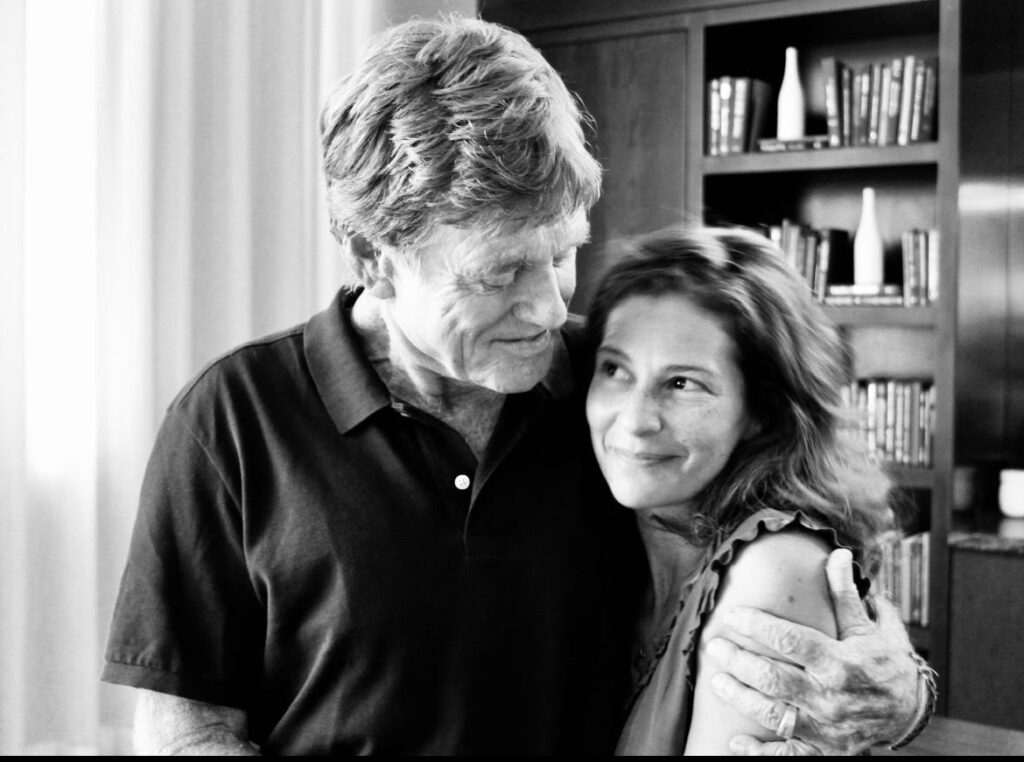
‘Out of Plain Sight’ Screening at San Francisco’s Roxie Theater
Out of Plain Sight, a new documentary from Los Angeles Times journalist and Pulitzer Prize-finalist Rosanna Xia and filmmaker Daniel Straub, exposes one of California’s more haunting environmental scandals: As many as half a million barrels of toxic waste had been quietly dumped into the ocean just off the coast of Los Angeles, and the consequences continue to haunt the world today.
Come see a special screening presented by The Redford Center at The Roxie Theater in San Francisco on Saturday, November 1 at 1 pm, followed by a Q&A with director Rosanna Xia and The Redford Center.
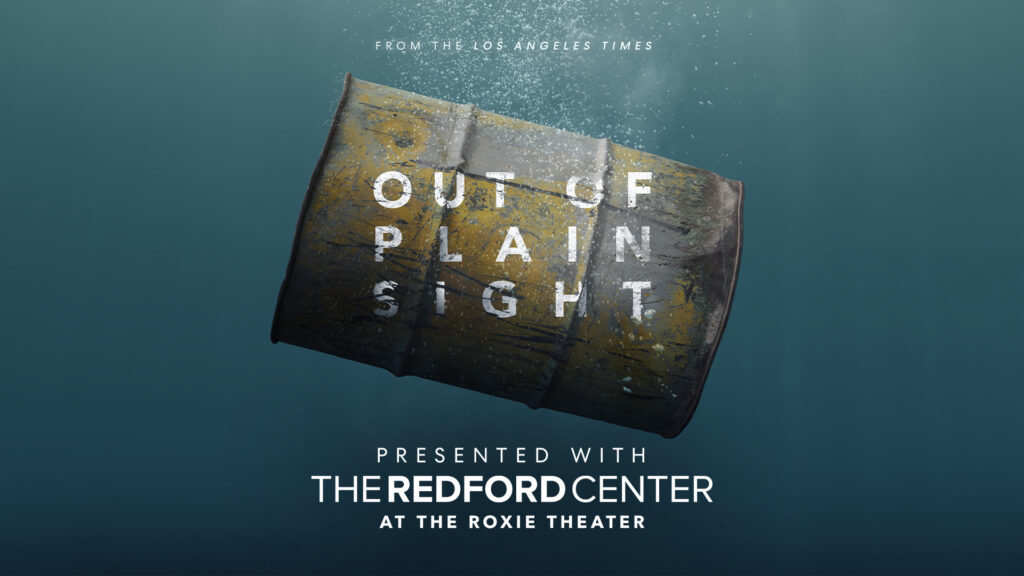
Indigenous-Led Solutions Films
Four Indigenous women leading global environmental movements took center stage in September’s Films That Move lineup, sharing stories of guardianship, resistance, and renewal told through their own lenses. In collaboration with the Helen Gurley Brown Foundation and Pat Mitchell, The Redford Center granted funds for the production and impact campaigns of these four short, inspirational vignettes which raise awareness of powerful, replicable, women-led climate solutions happening at a community level.
Enraizados | (Sélim Benzeghia, Director; Ivonne Serna, Director)
Zag: Tall Trees Need Deep Roots | (Clara Wetzel, Director)
Nuraga Bhumi | (Danielle Khan Da Silva, Director)
Kanenon:we – Original Seeds | (Katsitsionni Fox, Director; Katja Esson, Director)
In partnership with activist/artist Hāwane Rios, The Redford Center hosted a live conversation with September’s Solutions Films filmmakers to discuss their films and the importance of Indigenous-led solutions in stories like these. Watch highlights of their conversation at the link below, and monitor our Films That Move program for more info on our upcoming free screenings.
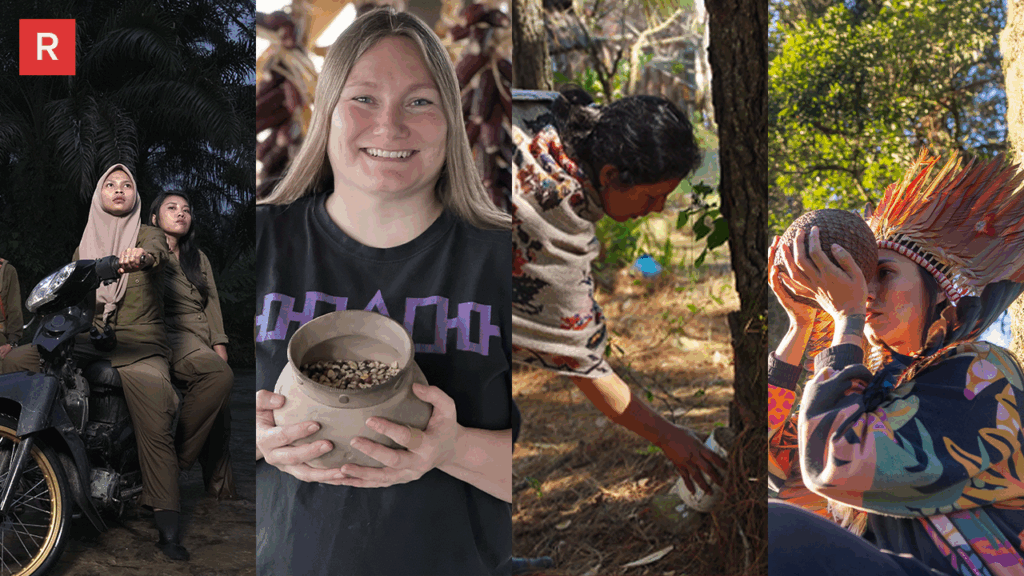
About The Redford Center
Co-founded in 2005 by activists and filmmakers Robert Redford and James Redford, The Redford Center is a nonprofit that advances environmental solutions through the power of stories that move. As one of the only US-based nonprofits solely dedicated to environmental impact filmmaking, The Redford Center develops and invests in projects that foster action and strengthen the reach of the grassroots efforts powering the environmental movement. Over the years, The Redford Center has produced three award-winning feature documentaries and more than 40 short films, supported over 150 film and media projects with grants and other services, inspired the creation of 550 student films, and disbursed more than $20 million to environmental film projects, amplifying change-making environmental solutions to millions of people worldwide.
